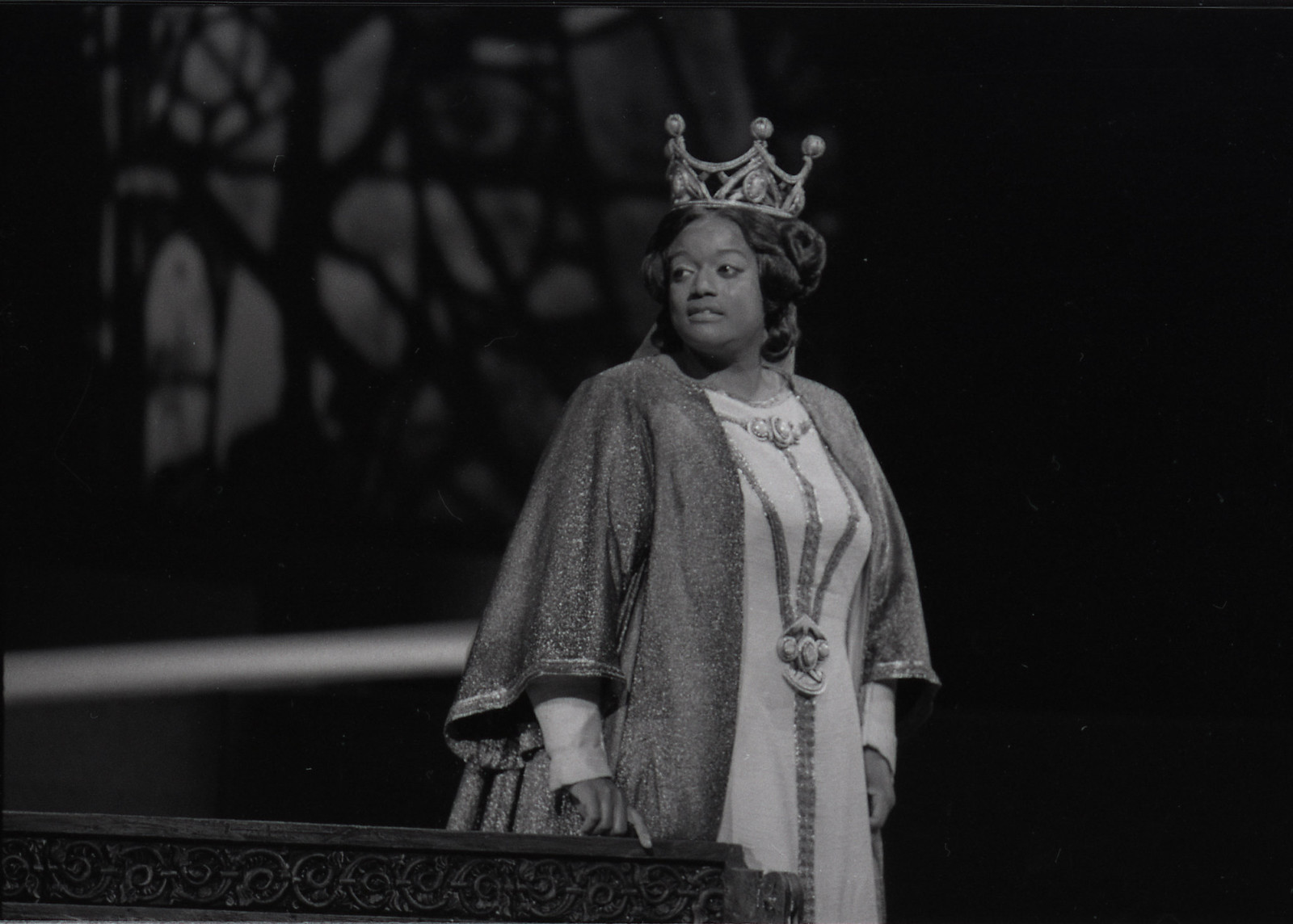
Jessye Mae Norman (Augusta (Georgia), 15 september 1945 – New York, 30 september 2019) was een Amerikaanse (klassieke) zangeres.
(* 15. September 1945 in Augusta (Georgia); † 30. September 2019 in New York City) war eine US-amerikanische Opernsängerin (Sopran). In ihrem Repertoire bildeten unter anderem Opern und Lieder der Romantik einen Schwerpunkt, sie ist aber auch als Interpretin von Spirituals und Jazz hervorgetreten und wurde mit fünf Grammys ausgezeichnet.
Jessye Norman wurde 1945 als Tochter einer Lehrerin und eines Versicherungsagenten in Georgia geboren. Die Eltern waren aktiv in der US-amerikanischen Bürgerrechtsbewegung und Amateurmusiker, die Mutter Pianistin, der Vater Sänger in einem Kirchenchor. Schon in ihrer Kindheit sang Norman gerne und häufig. Ein prägendes Erlebnis war nach ihrer Aussage ein Radiofeature mit Marian Anderson und Rosa Ponselle, von dem sie tief beeindruckt war.
Sie erhielt ein Stipendium an der Howard University, wo sie Musik studierte und 1967 mit einem Bachelor abschloss. Außerdem nahm sie Gesangsunterricht bei Alice Duschak in Baltimore und Pierre Bernac in Michigan. 1968 gewann sie den ersten Preis beim internationalen Musikwettbewerb der ARD in München. Daraufhin debütierte sie 1969 in der Rolle der Elisabeth in Richard Wagners Tannhäuser an der Deutschen Oper Berlin. In der zweiten Pause des Tannhäuser bot man ihr ein vierjähriges Engagement an, das sie annahm. Dort sang sie unter anderem auch die Rolle der Gräfin Almaviva in Mozarts Le nozze di Figaro und im Januar 1972 die Titelrolle in Verdis Aida in einer Neuproduktion unter der Leitung von Claudio Abbado. https://de.wikipedia.org/wiki/Jessye_Norman
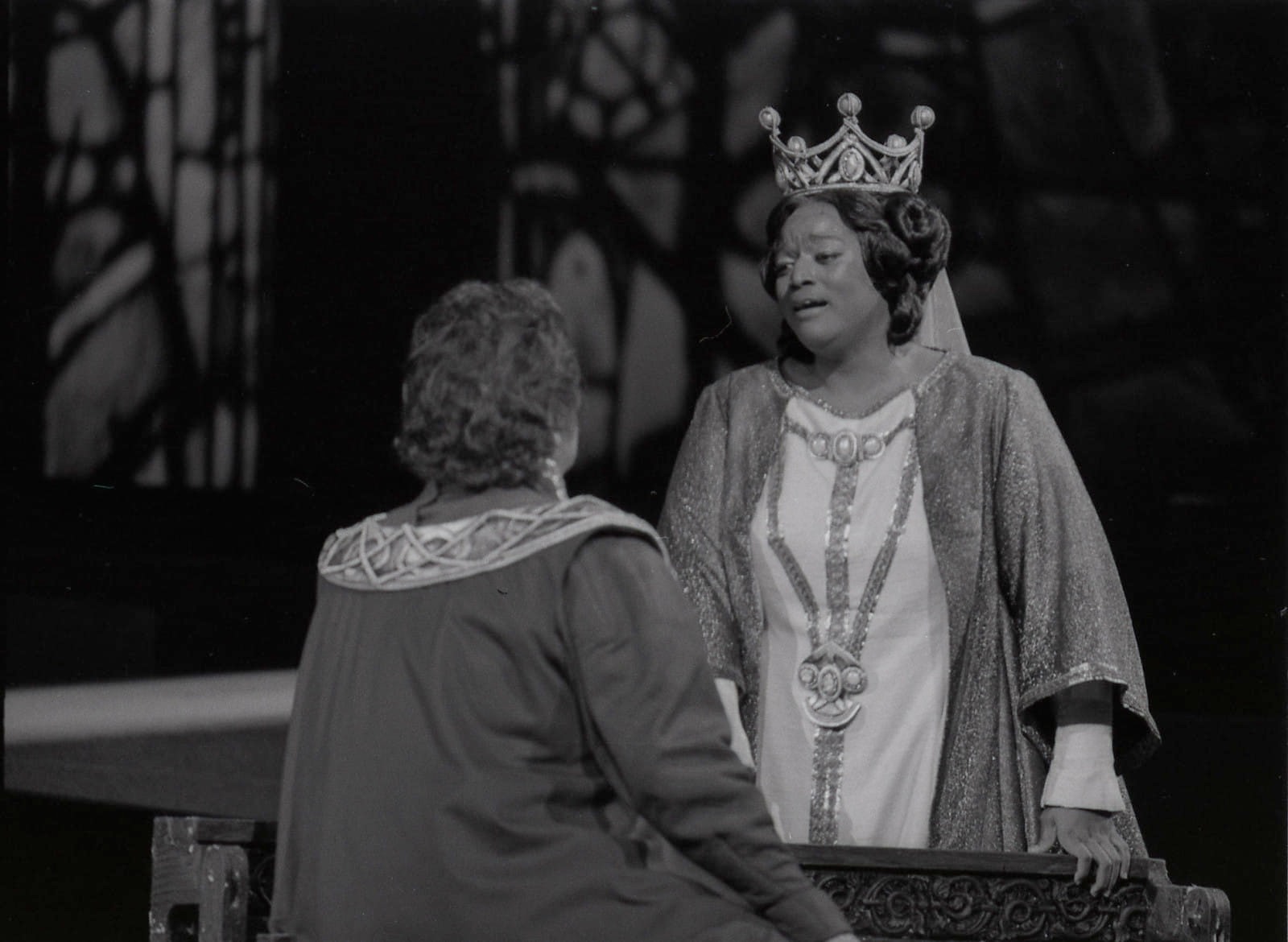
Josephine Veasey CBE (10 July 1930 – 22 February 2022) was a British mezzo-soprano, particularly associated with Wagner and Berlioz roles.
Born in Peckham, she studied with Audrey Langford, and became a member of the Royal Opera House chorus in 1949. She made her debut as a soloist on 5 July 1955 as the Page in Salome, followed by Cherubino in Le nozze di Figaro, and later roles included Dorabella in Così fan tutte, Marina in Boris Godunov, Preziosilla in La forza del destino, Eboli in Don Carlos, Amneris in Aida, and the title role in Carmen, amongst others. Beginning in 1957, she became a regular guest at the Glyndebourne Festival, notably as Charlotte in Werther and Octavian in Der Rosenkavalier. https://en.wikipedia.org/wiki/Josephine_Veasey
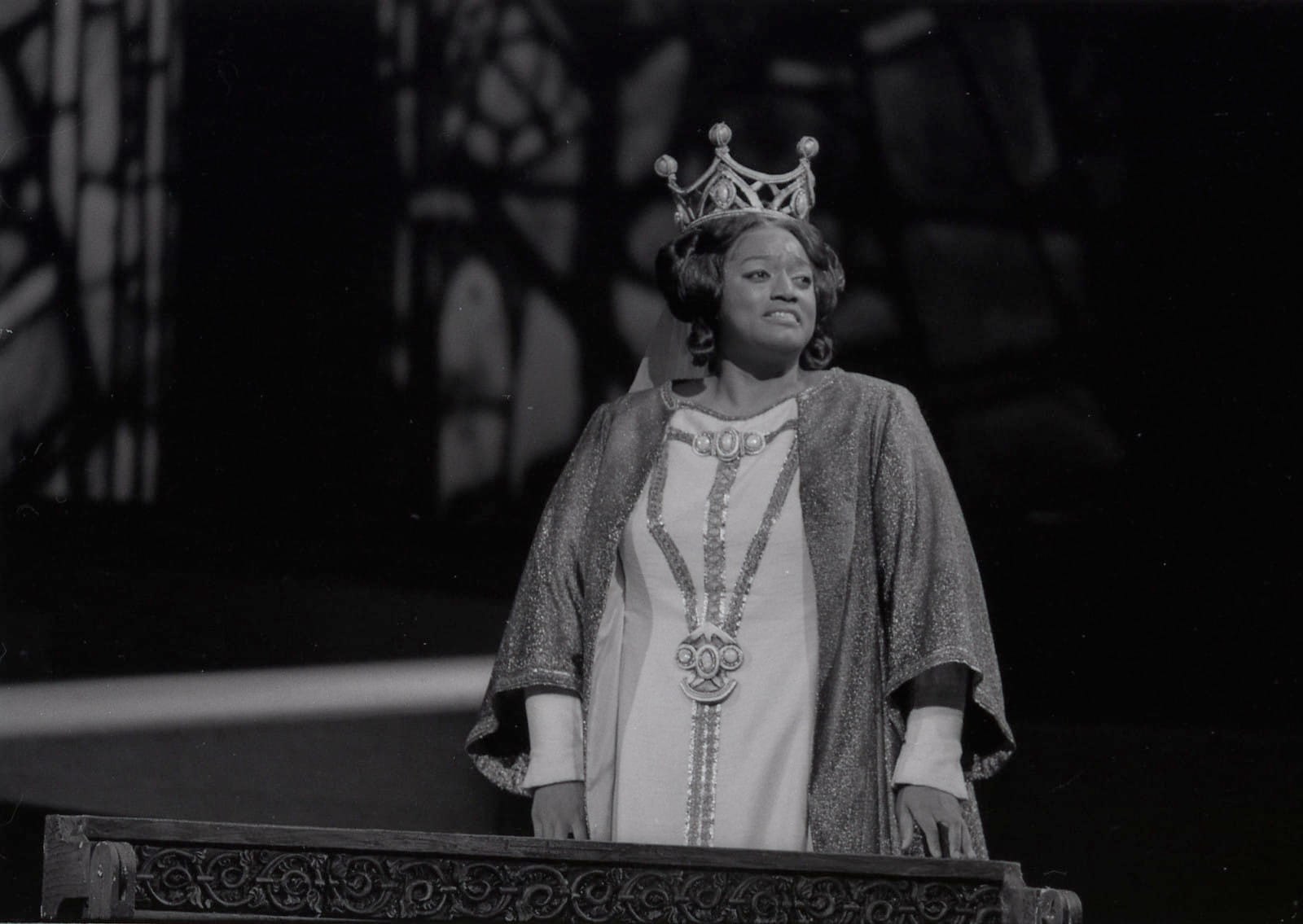
Karl Ridderbusch Norman Bailey Jessye Norman Josephine Veasey Tannhäuser full opera (1973 live)
Josephine Veasey obituary
Having the good fortune to reach her vocal maturity at a time when the Royal Opera had its own company of singers who were encouraged to essay a wide range of roles, she was able to move at her own pace, during her years as a company principal (1955–82), from lighter roles such as Dorabella in Così Fan Tutte and Rosina in Il Barbiere di Siviglia to heavier ones including Iphigénie (Iphigénie en Tauride), Preziosilla (Il Forza del Destino), Eboli (Don Carlos), Fricka and Waltraute in the Ring, Brangäne (Tristan und Isolde), Venus (Tannhäuser), Kundry (Parsifal) and first Cassandra, then Dido in Berlioz’s epic masterpiece.
Her approach to Berlioz came through the role of Marguerite in La Damnation de Faust (which she sang under Solti on the opening night of the 1963 Edinburgh festival) and the song cycle Les Nuits d’Été. She was then invited to take the role of Cassandra at the BBC Proms performance under Colin Davis in 1968, graduating to the lead role of the Queen of Carthage the following year in the new production at Covent Garden under the same conductor.
She also took the role of Dido in the Philips recording, released in 1969. The idiomatic diction and heroic strength she brought to the part, together with her commanding delivery and a tender, sensuous quality in the more intimate passages, made her a near-ideal interpreter of the role.
That regal aura stood her in good stead for the part of Fricka, consort of Wotan, the ruler of the gods, in the Ring. It was Georg Solti, then music director of Covent Garden, who encouraged her to learn the role, and beginning with Das Rheingold in 1964 she took it both in the Hans Hotter production then current and in the new staging by Götz Friedrich from 1974 to 1978, deploying her ample tone to imperious effect.
She was then invited to sing the part under Herbert von Karajan in Salzburg, and at La Scala and the Metropolitan, New York, as well as on his recording of the cycle, though the maestro’s working methods were anathema to her.
Born in Camberwell, south London, Josephine was the daughter of Ivy (nee Dunn) and Frank Veasey, a scientific instrument maker. The family, also including her elder sister, Doreen, were evacuated to Crawley Down in West Sussex during the second world war, and on leaving her secondary school in East Grinstead, she took a job with the Civil Service Clerical Association (now PCS). However, at the age of 18, having had singing lessons from Audrey Langford, she joined the chorus at Covent Garden.
Then she moved on to Opera for All, a small touring company, and in 1951 married Ande Anderson, a director on the staff of Covent Garden. After she had given birth to her children, Nick and Charlotte, she toured with the Covent Garden company as Cherubino (The Marriage of Figaro), and made her debut at the Royal Opera as the Page in Salome in July 1955, followed that November by a highly praised Shepherd Boy in Tannhäuser. It took some years for the larger roles to come her way. “I don’t have the kind of pushing personality that is always asking for new parts,” she said. “I suppose I’m very English in accepting what comes along.”
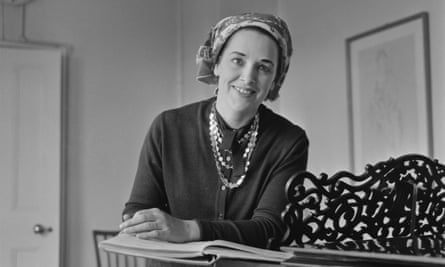
On the other hand, as she also noted, this meant she was not pressurised into taking more strenuous roles that might have harmed her voice. But eventually, along with Berlioz and Wagner, she performed at Covent Garden as Mrs Sedley (Peter Grimes, 1960), Maddalena (Rigoletto) and Mistress Page in Franco Zeffirelli’s Falstaff (both 1961), and in the title role of Carmen (1967).
Occasional appearances at Glyndebourne included Clarice in Rossini’s rarely performed La Pietra del Paragone (1964), in which she demonstrated her comic capabilities, Octavian (Der Rosenkavalier, 1965) and Charlotte (Massenet’s Werther, 1969).
For her Paris Opéra debut in 1969 she sang Dido, returning for Kundry in 1973; that year, too, she sang Eboli at San Francisco. A high extension to her lustrous mezzo voice enabled her to flourish in some soprano roles, such as Faure’s Pénélope and Selika in Meyerbeer’s L’Africaine, both of which she recorded for radio.
In Ernest Ansermet’s recording of Debussy’s Pelléas et Mélisande (1964) she took the role of Geneviève. Other recordings included comparatively rare ventures into bel canto, such as Agnese in Bellini’s Beatrice di Tenda alongside Joan Sutherland and Luciano Pavarotti, and Adalgisa in the same composer’s Norma at the Théâtre d’Antique, Orange, in the south of France, alongside Montserrat Caballé and Jon Vickers.
She created the roles of Andromache in Tippett’s King Priam (Covent Garden, 1962) and the Emperor in Henze’s We Come to the River (Covent Garden, 1976). In 1980 she gave a riveting performance as Gertrude in Ambroise Thomas’s Hamlet at the Buxton festival. Two years later she bade farewell to Covent Garden and the stage, singing Herodias in Richard Strauss’s Salome.
Among her favourite concert repertoire were Handel oratorios and the mezzo part in Verdi’s Requiem, which she recorded under Leonard Bernstein. In 1970 she was appointed CBE.
After she stopped performing she taught singing at the Royal Academy of Music and was a voice consultant at English National Opera. There her pupils included Sally Burgess, Felicity Palmer and – for Ko-Ko’s little list in Jonathan Miller’s production of The Mikado (1986) – Eric Idle.
Her marriage ended in divorce in 1969. She is survived by Charlotte, three grandchildren, Clare, Kate, and Ben, and three nieces. Nick died in 2020.
Josephine Veasey, mezzo-soprano, born 10 July 1930; died 22 February 2022
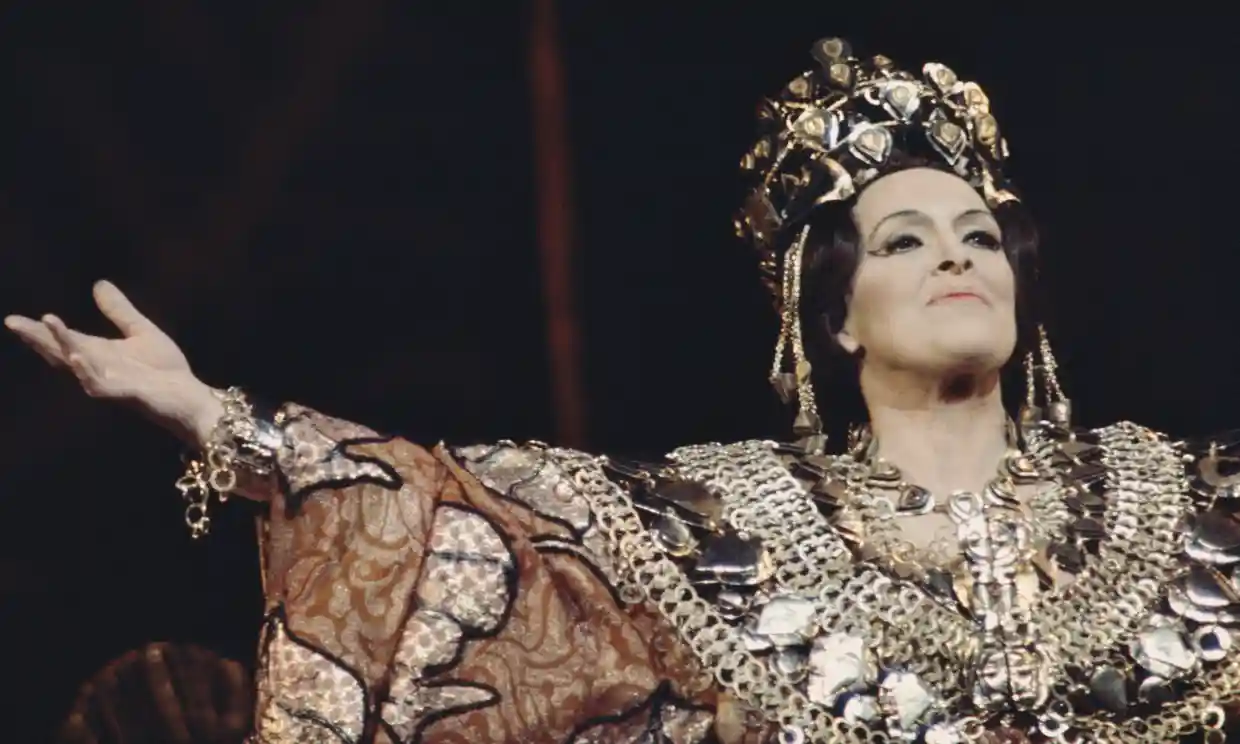
The free press is under attack from multiple forces. Media outlets are closing their doors, victims to a broken business model. In much of the world, journalism is morphing into propaganda, as governments dictate what can and can’t be printed. In the last year alone, hundreds of reporters have been killed or imprisoned for doing their jobs. The UN reports that 85% of the world’s population experienced a decline in press freedom in their country in recent years.
As you join us today from the Netherlands we hope you will consider supporting us in our efforts to do something about this. Despite the financial challenges plaguing the media industry, we’ve decided to keep our journalism paywall-free, because we believe everyone has the right to high-quality, fact-checked reporting. And we maintain our independence thanks to generosity from readers all over the world, who understand that supporting the free press is an investment in an informed and empowered public.
Unlike many others, we have no billionaire owner – this helps us maintain the freedom to fearlessly chase the truth and report it with integrity. Your support will allow us to continue to work with trademark determination and passion to bring you journalism that’s always free from commercial or political interference.
Help power the Guardian’s reporting for the years to come, whether with a small sum or a larger one. If you can, please support us on a monthly basis from just €2. It takes less than a minute to set up, and you can rest assured that you’re making a big impact every single month in support of open, independent journalism. Thank you.
https://www.theguardian.com/music/2022/mar/08/josephine-veasey-obituary
